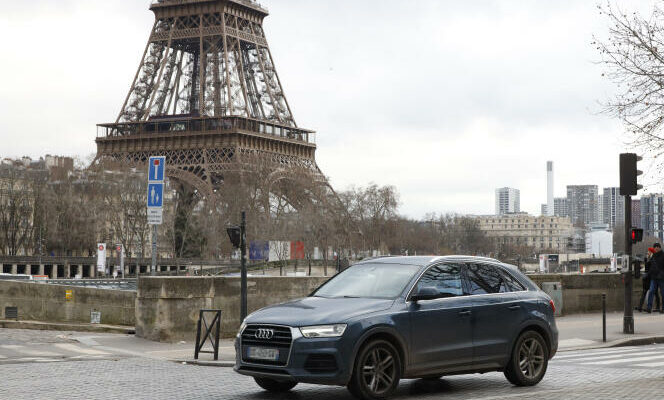A big red car accompanied by a question: “More or fewer SUVs in Paris? » The poster displayed across the capital by the town hall to call on Parisians to participate in the citizens’ vote on Sunday February 4 sets the tone. To these imposing models whose name (sport utility vehicles) comes from American automobile vocabulary, the municipality promises to provide shock treatment. She proposes tripling their (non-residential) parking rate, which would go, depending on the district, from an amount of 4 to 6 euros today to an amount of 12 to 18 euros per hour. Likewise, it will cost a maximum of 75 to 225 euros for six hours.
In reality, it is not specifically SUVs that are targeted, since there is no precise definition of this category. The consultation concerns “heavy, bulky and polluting individual cars”. More precisely, thermal vehicles whose weight exceeds 1.6 tonnes and electric vehicles which exceed 2 tonnes.
Thus, small SUVs such as the Renault Captur or the Peugeot 2008 would be spared, unlike the Hyundai Ioniq 6 electric sedan or certain versions of the thermal Renault Kangoo. According to the firm AAA Data, practically half (438,000) of the 892,000 vehicles registered in Ile-de-France and potentially affected by the system cannot be considered as SUVs.
This tension around the SUV concept says a lot about the pushback effect that this category of vehicles has on part of the political class. Parisian city councilors criticize it not only for polluting, but also for taking over an excessive share of public space and increasing the severity of traffic accidents.
Increased taxation
By designating it for popular condemnation, the socialist mayor of Paris, Anne Hidalgo, is going in the direction of a part of public opinion well represented in the capital, where barely one household in three has a car. In Lyon, the environmentally-led municipality has decided to increase, from summer 2024, the parking rate applied to heavy vehicles, without organizing a vote.
Even if it escapes traditional definitions, the SUV, now the majority among new vehicle sales in Europe (it reaches 47% of registrations in France), figures prominently in the sights of public authorities. It weighs on average some 300 kilos more than a sedan and has largely contributed to increasing the average mass and dimensions of automobiles. The growing impact on the vehicle fleet of SUVs, whose greenhouse gas emissions are higher than the average for their category, has also had the effect of annihilating part of the positive effects generated by the recent electrification of the walk.
You have 55% of this article left to read. The rest is reserved for subscribers.
